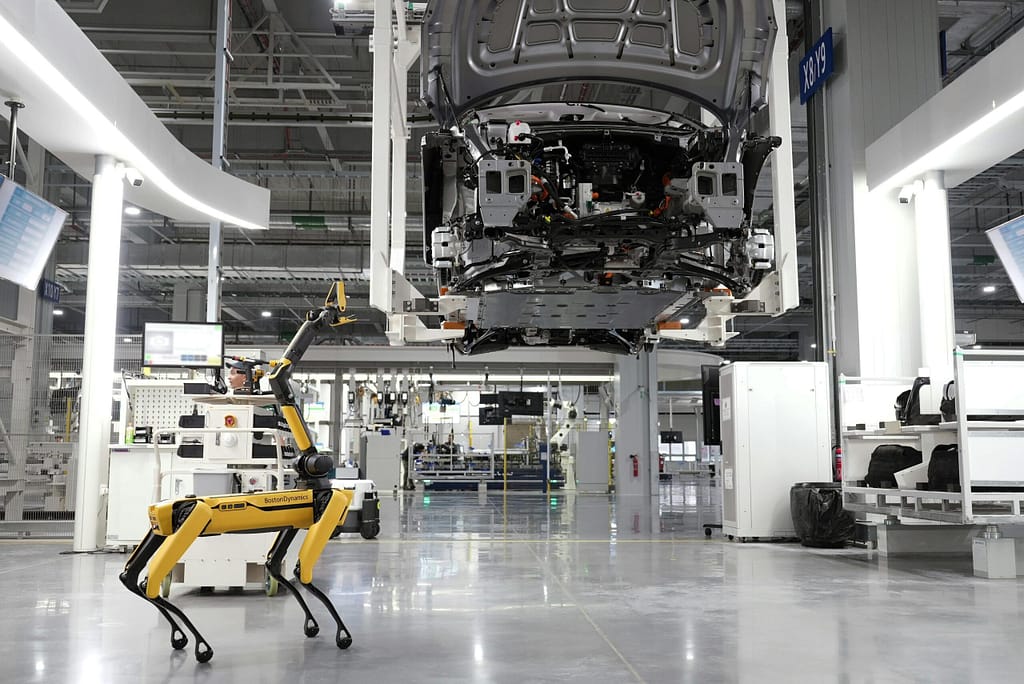By iWise
Artificial Intelligence (AI) is no longer a futuristic concept—it is a powerful tool that businesses are using today to improve efficiency, reduce costs, and drive growth. The shift from manual processes to AI-driven automation is transforming industries across the globe, allowing companies to optimize operations, enhance decision-making, and provide better customer experiences.
For businesses looking to remain competitive, understanding how to leverage AI for growth is critical. Whether through automating repetitive tasks, utilizing AI-powered analytics, or improving customer interactions, the opportunities for AI-driven transformation are vast. This article explores how businesses can make the transition from manual to automated processes, unlocking new levels of efficiency and scalability.
1. Automating Repetitive Tasks to Increase Productivity
Many businesses still rely on manual processes that consume time and resources. Tasks such as data entry, scheduling, and email management can be automated using AI-powered tools, freeing up employees to focus on more strategic and creative work.
AI-powered virtual assistants and robotic process automation (RPA) software can handle tasks that once required human intervention. For example, AI-driven scheduling tools can automatically arrange meetings based on availability, reducing the need for back-and-forth emails. Similarly, AI-powered email filtering and response systems can categorize and respond to inquiries, saving time and ensuring prompt communication.
Industries such as finance, human resources, and logistics have seen significant improvements through automation. AI-driven accounting software can generate financial reports and detect inconsistencies, while AI-powered HR systems can streamline recruitment by automatically screening candidates and scheduling interviews.
By automating repetitive tasks, businesses can reduce human error, increase operational efficiency, and allow employees to focus on higher-value activities that drive innovation and business growth.
2. Leveraging AI for Data-Driven Decision Making
In today’s digital world, businesses generate vast amounts of data. However, making sense of this data manually is inefficient and often leads to missed opportunities. AI-powered analytics tools provide businesses with valuable insights by processing large datasets and identifying patterns that humans may overlook.
AI-driven data analytics can help businesses in several ways:
- Market Trends and Consumer Behavior: AI can analyze customer preferences, purchasing patterns, and market trends to help businesses tailor their offerings to meet demand.
- Predictive Analytics: AI can forecast sales trends, inventory needs, and operational risks, allowing businesses to make proactive decisions.
- Financial Optimization: AI-powered algorithms can identify cost-saving opportunities, optimize budgets, and prevent fraud by detecting anomalies in financial transactions.
For example, e-commerce platforms use AI to recommend products based on a customer’s browsing history, while financial institutions leverage AI to assess credit risks and detect fraudulent activities. Businesses that harness AI for data-driven decision-making gain a competitive edge by responding to market shifts faster and making more informed strategic decisions.
3. Enhancing Customer Experience with AI-Powered Interactions
Customer expectations are higher than ever, and businesses must find innovative ways to provide seamless and personalized experiences. AI-powered tools such as chatbots, virtual assistants, and recommendation engines are helping companies engage with customers more effectively.
AI-driven customer service chatbots can provide instant support, answer common inquiries, and resolve issues without human intervention. These AI assistants improve over time by learning from interactions, ensuring more accurate and helpful responses. Companies that implement AI in customer service can handle higher volumes of requests while reducing operational costs.
Beyond chatbots, AI enhances personalization in marketing and sales. Businesses can use AI algorithms to analyze customer behavior and deliver targeted promotions, increasing conversion rates. AI-driven recommendation engines, like those used by streaming services and online retailers, improve user experience by suggesting relevant content or products based on individual preferences.
By integrating AI into customer interactions, businesses can build stronger relationships, enhance brand loyalty, and provide a more efficient and satisfying experience for their clients.
4. Scaling Business Operations with AI-Powered Automation
As businesses grow, managing operations manually becomes increasingly complex. AI-powered automation allows companies to scale without a proportional increase in labor costs or inefficiencies.
AI can optimize supply chains by predicting demand fluctuations, reducing waste, and streamlining logistics. Automated inventory management systems use AI to monitor stock levels and reorder supplies before shortages occur. This is particularly beneficial for industries such as retail, manufacturing, and healthcare, where supply chain disruptions can impact profitability.
AI also plays a crucial role in workforce management. AI-driven tools can analyze employee performance, predict workforce needs, and automate scheduling, ensuring optimal resource allocation. This is especially valuable for businesses with fluctuating demand, such as hospitality, healthcare, and seasonal industries.
With AI handling operational complexities, businesses can scale efficiently, improve service delivery, and maintain high-quality standards even as they expand.
Conclusion
The transition from manual to automated processes is no longer a luxury—it is a necessity for businesses that want to remain competitive in an increasingly digital world. AI is transforming industries by automating repetitive tasks, providing data-driven insights, enhancing customer interactions, and enabling scalable growth.
For businesses looking to leverage AI, the key is to start with strategic implementation. Identifying processes that can be automated, investing in AI-powered analytics, and integrating AI into customer service are all steps toward a more efficient and profitable future.
At iWise, we believe that AI is the future of business innovation. By embracing AI-powered automation, companies can unlock new opportunities for growth, optimize operations, and deliver superior experiences to customers. The businesses that act now will be the ones leading the market in the years to come.











